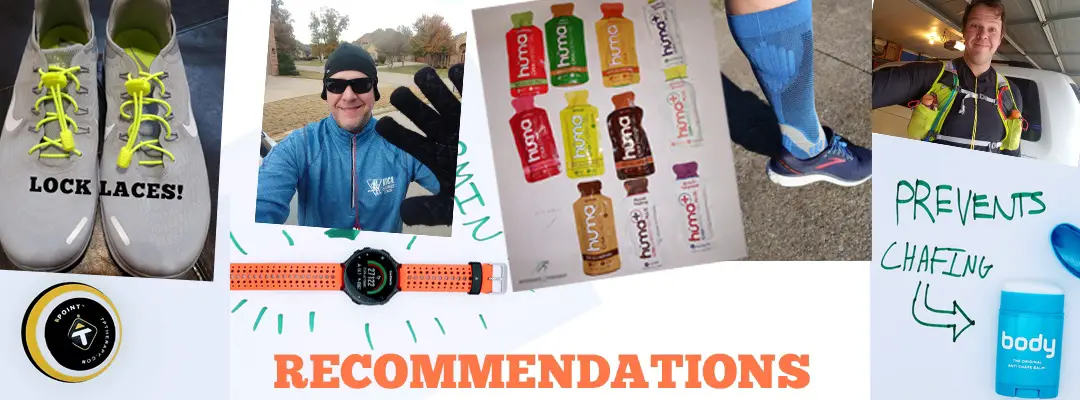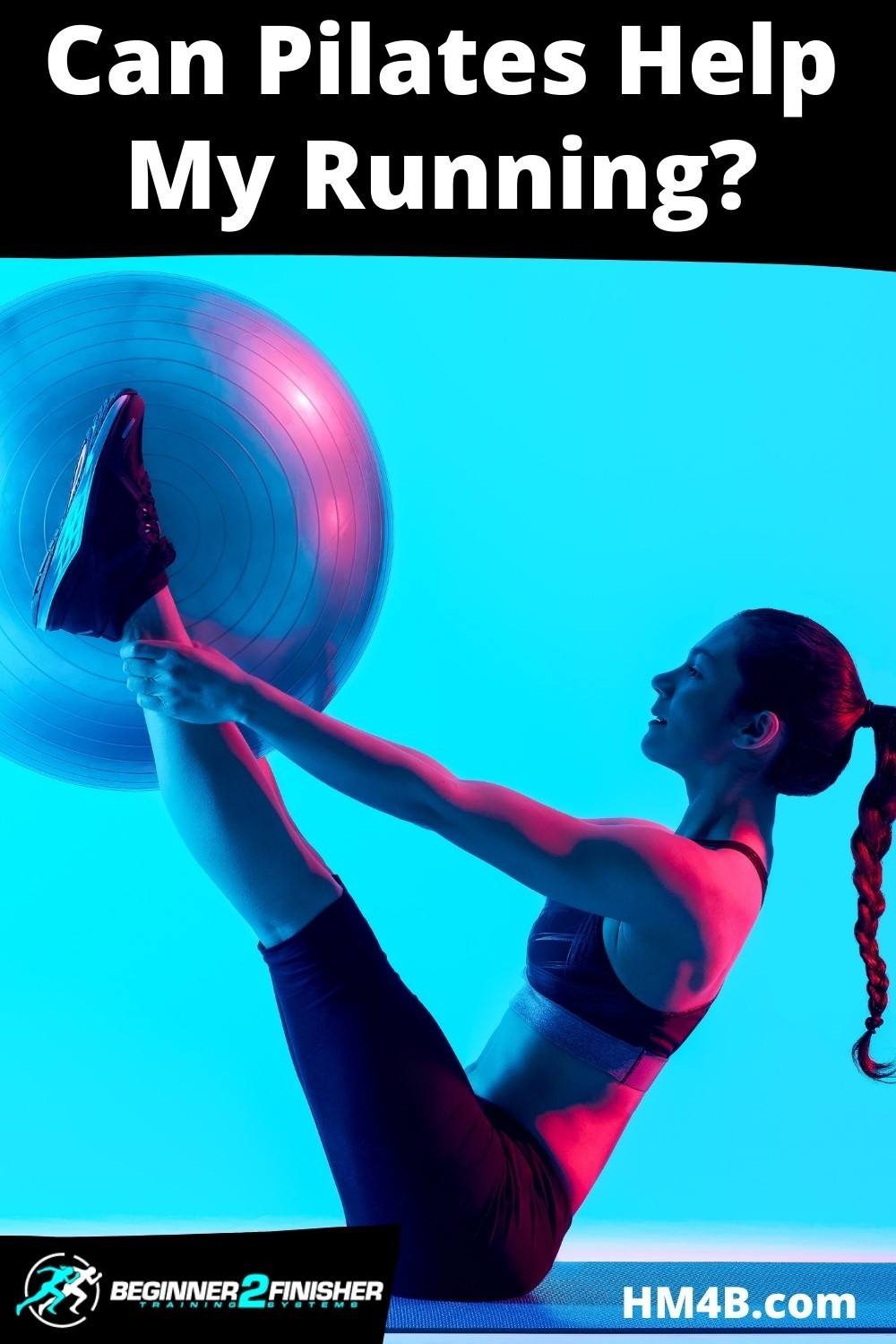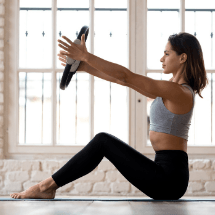If you are a frequent runner, looking for an exercise to add to your daily routine to reduce the stress on your joints, you might be asking can Pilates help my running? If so, the answer is yes, Pilates is a very good exercise to combine with running.
Because it is low impact, it provides a particularly good companion exercise and can help to strengthen your core and boost your stability. Let’s learn a bit more about what it is and how it can help.
What is Pilates? (Definition)
Pilates is a type of exercise that is focused on flexibility, posture, and balance. It is about strengthening your core and working on a connection between body and mind. A lot of the exercise focuses on bringing your breathing into time with your movements.
Pilates has a low chance of injury and is a good way to exercise without stressing your body. It helps tone your abdomen and works on every part of your body. It can be done with or without equipment.
What Benefits Can I Expect From Practicing Pilates?
There are quite a few benefits you can expect from doing Pilates on a regular basis, and many of them are particularly useful if you’re suffering from some of the problems of a high-impact sport such as running.
Firstly, doing Pilates can increase your breathing control. It helps you expand your diaphragm fully with each breath, and gives you more focus and control over how you breathe. When running, this can help you to keep going for longer.
Pilates also helps improve your blood flow, which means it can help your body heal after an intense workout. It may help to decrease your recovery time after a hard run, reducing muscle soreness and tightness so you can get back out there sooner.
Furthermore, Pilates can help to reduce your chances of getting injured, as it improves your posture and ensures you are running in a way that evenly distributes the impact across your body. It trains you in more calculated, precise movements. This can help to prevent injuries and to reduce the effect of injuries that have already occurred.
As mentioned, it also helps with your core strength and your mobility and flexibility. It often focuses on stretching out short, tight muscle groups, making your run more comfortable and potentially improving the length of your stride.
The core strength will help to keep your neck, hips, back, and shoulders in the right position, reducing strain on your back and lower legs. This is essential for runners, who may otherwise suffer injury as a result of poor core strength. You might even find your running posture improves.
Related: Does pilates count as strength training?
Is Pilates In Any Way Harmful For Runners?
It doesn’t seem that Pilates poses any particular dangers to runners. Because it is low impact, you are unlikely to injure yourself or stress your body while doing it, and much more likely to gain some of the benefits talked about above.
Pilates seems a pretty perfect accompaniment to running, rather than a source of issues. It may even enable you to run more often because it will help with your healing and stretch out muscles that might otherwise be very tight.
Will Pilates Make You Run Faster?
Some runners do feel that doing Pilates lets them run faster. This may be because their muscles have become more flexible and relaxed. Loosening tight muscles could potentially improve a runner’s stride and lengthen each step that they take.
People who do Pilates will also have honed their breathing to be in time with their movements, improving the efficiency of their breathing and the synchronization of their movements.
It’s also possible that doing Pilates helps energize runners and warm up their muscles in preparation for the run, engaging the whole body and preparing it to exercise.
There isn’t much else to explain why Pilates might make a runner move faster, but perhaps the exhilaration and focus that Pilates can provide also contribute to better times and more enthusiasm for the run.
Is It Better To Run Before Or After Pilates?
You can do either or both, depending on your preferences. There are benefits to doing Pilates both before you run and after you’ve finished.
Doing Pilates before you run can prepare your body for the high-impact aspect of running. It stretches and loosens your muscles, opens up your breathing, improves your posture, and is generally a great preparation or warm-up option that will make the run more enjoyable and better for you.
Doing Pilates after you run is a good cool-down option. Because it improves blood flow to the muscles, it can help to promote healing. It’s low impact, so it gives muscles a chance to stretch and work without the constant shocks of running. Many people find it also calms them down after a long run.
Perhaps the best option is to do a bit of both. You can do short bursts of Pilates, as it is quite intense, so it’s perfectly possible to do a little bit both before and after your run.
Is Yoga Better Than Pilates?
Yoga and Pilates share quite a few similarities, particularly in their focus on centered breathing. Both pay attention to stretching, bending, and strengthening your core, so both will offer benefits to runners. Some people say that yoga is better for prevention, while Pilates is better for healing.
Really, this comes down to personal preference, and you could alternate to get the slightly different gains of each sport.
How Many Times Should I Perform Pilates During My Weekly Running Schedule?
Pilates is surprisingly hard work. To start out with, you will probably only manage a couple of sessions a week. As you progress and get stronger, you may wish to increase that to 3-4 sessions each week.
Many people enjoy doing Pilates in combination with their run, in which case it will end up fitting around whatever your existing schedule is, but this will depend on your preferences. You don’t have to do Pilates before and after every run to reap the benefits from it.
Is Pilates Good For Runner’s Knee?
Runner’s knee is caused by muscles on the outside of the knee pulling the patella out. The patella then rubs against the outer groove of the femur.
This problem is often caused because the muscle groups on the outside of the knee and thigh are too tight. Doing Pilates regularly could help to loosen up these muscles and reduce the chances of Runner’s Knee occurring. It may even be able to help reduce the issue once it has begun.
However, remember that it’s important to seek professional medical help for any sports injury. Don’t just hope that Pilates will solve the problem.
What Are Some Common Forms Or Variants Of Pilates?
One of the great things about Pilates is that there are many kinds, so whatever your circumstances, you are likely to find something that suits you. The different kinds include:
- Clinical Pilates (usually aimed at rehabilitation after an injury)
- Contemporary Pilates (focused on current medical knowledge and contemporary forms of exercise, also good for rehabilitation)
- Mat Pilates (this mostly involves using the resistance of your own body and performing exercises without any equipment)
- Classic Pilates (a combination of body-work on the mat and using equipment, this focuses on a full body and mind workout)
- Reformer Pilates (makes use of a Pilates reformer machine to add a controlled level of resistance, often good for rehabilitation)
Which Form Of Pilates Is The Best For Runners?
Any kind of Pilates will benefit runners by improving muscle flexibility, core strength, and endurance, so it’s more important that you find a kind that suits you and feels good.
Mat Pilates may prove the most accessible for working into your running routine, as it does not require any equipment besides the mat.
Is Reformer Pilates Good For Runners?
Reformer Pilates is particularly good for anyone who has suffered a knee injury, which may increase its suitability for runners. It allows you to reduce the weight on your knees, but still offers an intense workout for your body.
However, it does depend on equipment, so it may not be very easy to do in conjunction with running unless you have the space for a home gym or you can time your run to fit in with a class.
You don’t have to be recovering from an injury to benefit from Reformer Pilates, but this is what the exercise is particularly focused on assisting with, so you may find that you get more benefit from one of the other kinds of Pilates.
Conclusion
Pilates is a wonderful complimentary sport to pair with running, and it can certainly help to improve your running posture, your technique, and your endurance. It is a good way to reduce the damage done by the high-impact sport, and may even be able to improve your running speed.
Combining Pilates with running on a regular basis can help your overall fitness, reduce your chance of injury, and create a better connection between your mind and your body during exercise, which may make your workout both more enjoyable and more fruitful.
| Help support me and subscribe to my YouTube channel. YouTube video - 30 ways to make your runs less painful! Coach Scott's Credentials:
|
To sign up for a FREE half marathon training schedule, log sheet, and pace predictor CLICK HERE.

Recommended gear for runners
Connect with me:
| facebook.com/BeginnerToFinisher/ |
References
https://www.runnersworld.com/uk/health/a773930/why-runners-should-do-pilates/
https://www.harpersbazaar.com/uk/beauty/fitness-wellbeing/a25626354/yoga-vs-pilates/
https://www.runnersworld.com/training/a20865857/pilates-exercises-for-runners/
https://www.self.com/story/5-things-to-know-before-you-take-pilates-classes
https://www.totalfitness.co.uk/blog/fitness/what-is-pilates/



3 thoughts on “Can Pilates Help My Running?”